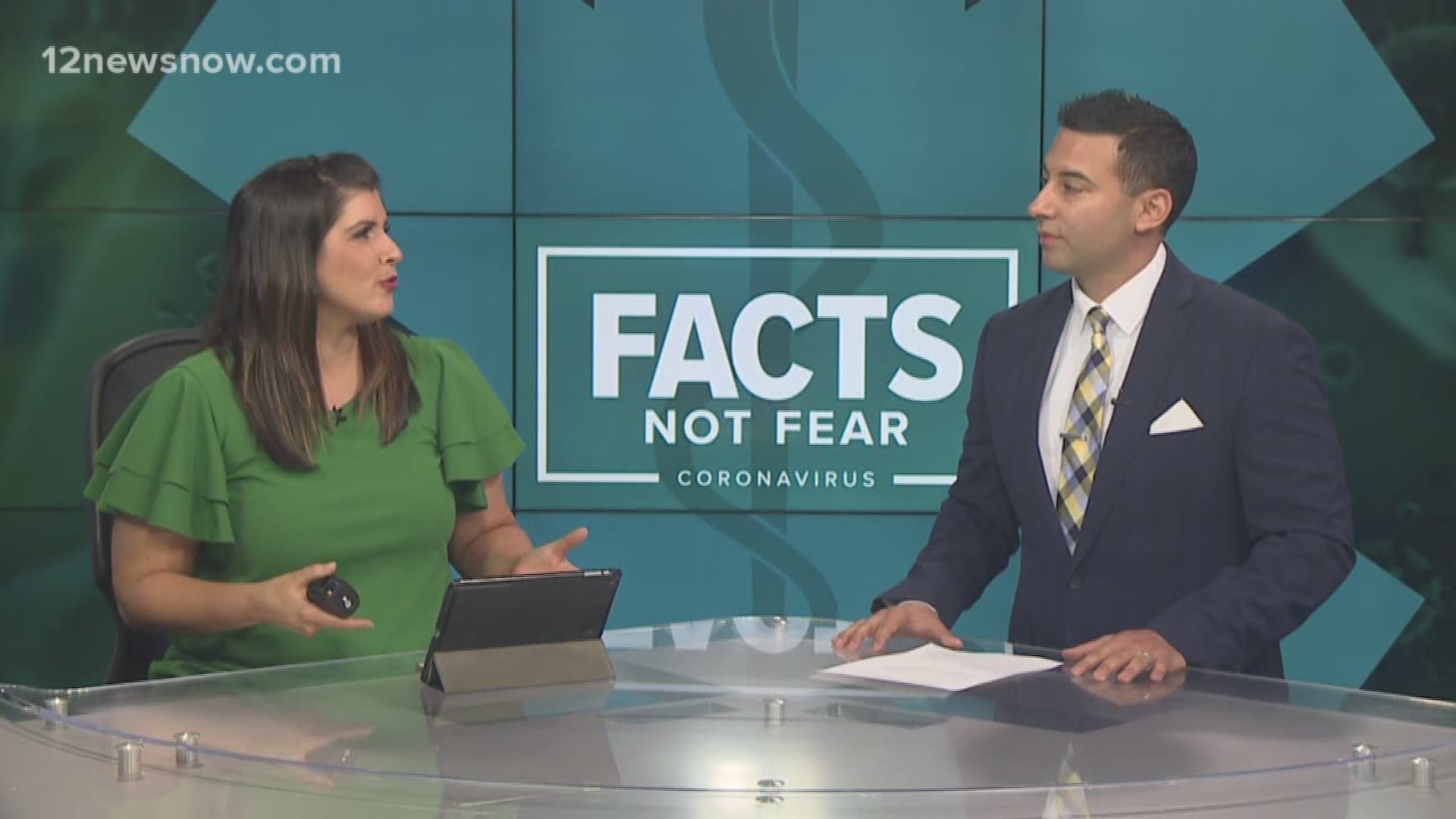ORANGE, Texas — A disaster declaration and emergency orders were issued for Orange County Monday morning that include canceling events and a 24-hour curfew for teens out of concern for the coronavirus.
The disaster order, issued by Judge John Gothia, continues for seven days from Tuesday.
Gothia also released an emergency order with recommendations to help curb the potential spread of the virus.
The orders enacted an immediate 24 hour curfew for anyone under 18 who is not in school or with their parent, guardian or school personnel. The curfew does allow for travel to and from home and work.
Events in Orange County with more than 50 in attendance are ordered to cease and all events sponsored or permitted by the county are ordered canceled.
The order also cancels any event sponsored and permitted by the county.
Nursing homes and senior living centers in the county are ordered to limit visits from the public according to the emergency orders.
In addition the order adds price controls tied to prices on March 12, 2020, for items such as groceries, gas, meals rent and many other items normally associated with a disaster.
Here’s the full list…
- Groceries, beverages, toilet articles, ice;
- Construction and building materials and supplies and earthmoving equipment and machinery;
- Electrical and gas generating and transmission equipment, parts and accessories;
- Charcoal briquettes, matches, candles, lamp illumination and heat unit carbides, dry batteries, light bulbs, flashlights, and hand lanterns;
- Hand tools (manual and power), hardware and household supplies, and equipment rental;
- Automotive parts, supplies and accessories;
- Plumbing and electrical tools and supplies;
- Apartment, duplex, multi-family dwelling, rooming house, hotel and motel rental;
- Gasoline, diesel oil, motor oil, kerosene, grease, and automotive lubricants;
- Restaurant, cafeteria and boarding house meals;
- Services of roofing and building contractors, plumbers, electricians, mechanics, tree surgeons, and automobile wrecker companies;
- Medicine, pharmaceuticals, medical equipment and supplies;
- Blankets, quilts, bedspreads, bed liners, mattresses, bedsprings, bedsheets, bedsteads, towels and toilet paper; and
- Furniture and clothing.
---------------------------------------
Coronavirus symptoms
The symptoms of coronavirus can be similar to the flu or a bad cold. Symptoms include a fever, cough and shortness of breath, according to the Centers for Disease Control.
Most healthy people will have mild symptoms. A study of more than 72,000 patients by the Centers for Disease Control in China showed 80 percent of the cases there were mild.
But infections can cause pneumonia, severe acute respiratory syndrome, kidney failure and even death, according to the World Health Organization. Older people with underlying health conditions are most at risk.
The CDC believes symptoms may appear anywhere from two to 14 days after being exposed.
RELATED: VERIFY: No, members of Congress who are self-quarantined for coronavirus cannot vote remotely
Human coronaviruses are usually spread through...
- The air by coughing or sneezing
- Close personal contact, such as touching or shaking hands
- Touching an object or surface with the virus on it, then touching your mouth, nose or eyes before washing your hands.
Help stop the spread of coronavirus
- Stay home when you are sick.
- Eat and sleep separately from your family members
- Use different utensils and dishes
- Cover your cough or sneeze with your arm, not your hand.
- If you use a tissue, throw it in the trash
Lower your risk
- Wash your hands often with soap and water for at least 20 seconds. If soap and water are not available, use an alcohol-based hand sanitizer.
- Avoid touching your eyes, nose, and mouth with unwashed hands.
- Avoid close contact with people who are sick.
- Clean and disinfect frequently touched objects and surfaces.
- If you are 60 or over and have an underlying health condition such as cardiovascular disease, diabetes or respiratory illnesses like asthma or COPD, the World Health Organization advises you to try to avoid crowds or places where you might interact with people who are sick.

